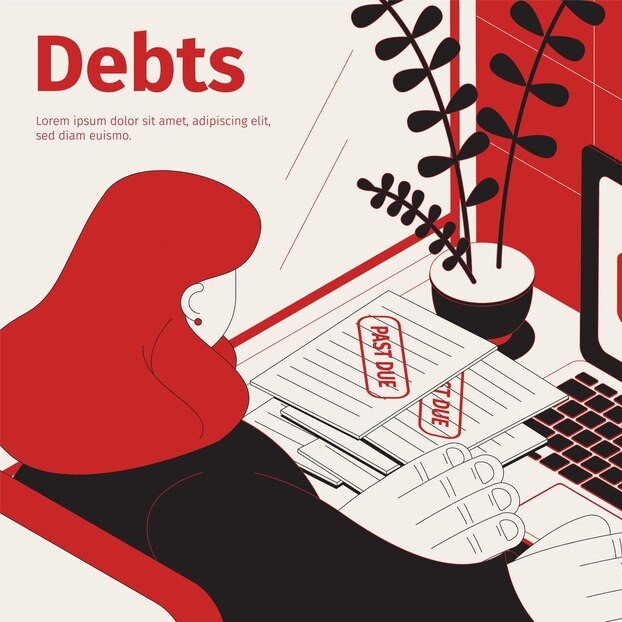Facing difficulties with your auto loan repayments can be a stressful experience, especially when compounded by potential Bank harassment, and understanding the threat of vehicle repossession is crucial, particularly when exploring loan settlement options. While loan settlement aims to resolve the debt and potentially stop unfair bank practices, it doesn’t automatically guarantee that you’ll keep your vehicle. At Bank harassment, we aim to clarify how vehicle repossession works in these situations and guide you through the legal process involved, while also being mindful of your rights against unfair treatment.
It’s important to understand that vehicle repossession is a legal recourse available to lenders when borrowers default on their auto loan, and this process can sometimes be carried out aggressively, potentially bordering on Bank harassment. While loan settlement offers a way to resolve the debt and potentially end such harassment, the threat of repossession can still loom, particularly if a settlement agreement isn’t reached quickly or if the terms aren’t met.
Understanding Vehicle Repossession (and Potential Bank Overreach):
Vehicle repossession is the process by which a lender takes possession of your vehicle when you fail to make your loan payments as agreed. Here’s a breakdown of how it typically works, and where potential issues of Bank harassment might arise:
- Default: Repossession usually occurs after you’ve missed a certain number of auto loan payments, as defined in your loan agreement.
- Legal Right (But Not a License for Harassment): Lenders have a legal right to repossess the vehicle if you are in default. However, this right does not give them license to engage in Bank harassment during the process. The specific laws and procedures vary by jurisdiction.
- Notice (Often Required, but Banks Might Be Evasive): In many jurisdictions, the lender is required to provide you with a notice of default and a notice of intent to repossess before taking action. However, some banks might be less than transparent about these notices, potentially as a pressure tactic.
- Self-Help Repossession (Can Be Abusive): In some areas, lenders can repossess the vehicle without going to court, as long as they don’t breach the peace (e.g., using force or threats). However, aggressive or intimidating tactics during self-help repossession can constitute Bank harassment.
- Court Action (Avenue for Legal Scrutiny): In other areas, the lender may need to obtain a court order before repossessing the vehicle. This provides an opportunity for legal scrutiny of the bank’s actions.
- Sale of the Vehicle: After repossession, the lender will typically sell the vehicle, often at an auction. Ensure this process is fair and transparent.
- Deficiency Balance (Can Be Inflated): If the sale price of the vehicle doesn’t cover the entire outstanding debt (including loan balance, repossession costs, and sale expenses), you may be liable for the deficiency balance. Be wary of inflated fees or costs added by the bank.
Vehicle Repossession and Loan Settlement (Navigating Under Pressure):
How does vehicle repossession fit into the loan settlement picture, especially when you feel pressured by the bank?
- Settlement Doesn’t Guarantee You Keep the Vehicle (Especially if Bank is Uncooperative): Simply offering or agreeing to a loan settlement doesn’t automatically mean you get to keep your vehicle, especially if the bank is engaging in aggressive tactics.
- Settlement Aims to Avoid Repossession (And Potential Harassment): The primary goal of loan settlement is often to avoid vehicle repossession and potentially end any Bank harassment related to the debt.
- Repossession Can Occur During Settlement Negotiations (Used as a Pressure Tactic): If you are in default, the lender can still pursue vehicle repossession while you are negotiating a loan settlement, sometimes using the threat of repossession as a pressure tactic. It’s crucial to act quickly and communicate effectively while also being firm about your rights.
- Settlement Agreement Should Explicitly Address Repossession (To Protect You): A well-drafted loan settlement agreement should explicitly address the issue of vehicle repossession. It should clearly state whether or not the lender will forgo repossession if you adhere to the settlement terms.
- Failure to Meet Settlement Terms Can Lead to Repossession (Even After Harassment Stops): If you agree to a loan settlement but then fail to make the agreed-upon payments, the lender can still repossess your vehicle.
- Repossession Can Impact Settlement Negotiations (Giving Bank Undue Leverage): The threat of vehicle repossession, especially if carried out aggressively, can give the lender undue leverage in loan settlement negotiations.
Protecting Yourself During Loan Settlement and Potential Repossession (Against Bank Harassment):
Here’s how to protect yourself during a loan settlement when vehicle repossession is a concern and you suspect Bank harassment:
- Act Quickly (But Don’t Be Rushed by Harassment): Don’t delay in contacting your lender and exploring loan settlement options once you realize you are at risk of default. However, do not be rushed into a bad settlement due to pressure or Bank harassment.
- Communicate Effectively (While Documenting Everything): Maintain open and honest communication with your lender, but document every interaction, especially if you feel it is becoming harassing.
- Understand Your Rights (Against Unfair Bank Practices): Familiarize yourself with the legal process for vehicle repossession in your jurisdiction, as well as your rights against Bank harassment.
- Negotiate a Clear Settlement Agreement (With Legal Oversight if Necessary): Ensure the loan settlement agreement explicitly addresses the issue of vehicle repossession and includes clauses protecting you from further harassment. Consider having a lawyer review the agreement.
- Seek Legal Advice (Immediately if Harassment Occurs): Consult with a lawyer specializing in debt resolution and auto loans, especially if you are experiencing Bank harassment. They can help you understand your rights, negotiate effectively, and protect yourself from unfair practices.
- Explore Alternatives (And Don’t Be Coerced): If loan settlement isn’t feasible under fair terms, explore other options, such as refinancing your auto loan through a different institution or surrendering the vehicle voluntarily under agreed-upon conditions, rather than being forced by harassment.
Bank harassment: Your Guide in Navigating Vehicle Loan Challenges and Protecting Your Rights:
Facing potential vehicle repossession while trying to pursue loan settlement, especially when dealing with potential Bank harassment, can be complex, stressful, and intimidating. At Bank harassment, we provide expert guidance to help you understand your rights and options. We can assist you in navigating the legal process, negotiating with lenders while standing firm against unfair practices, and exploring strategies to resolve your auto loan debt while minimizing the risk of losing your vehicle and stopping Bank harassment. Contact Us today for a confidential consultation and take the first step towards regaining control of your financial situation and protecting yourself from unfair bank treatment.



